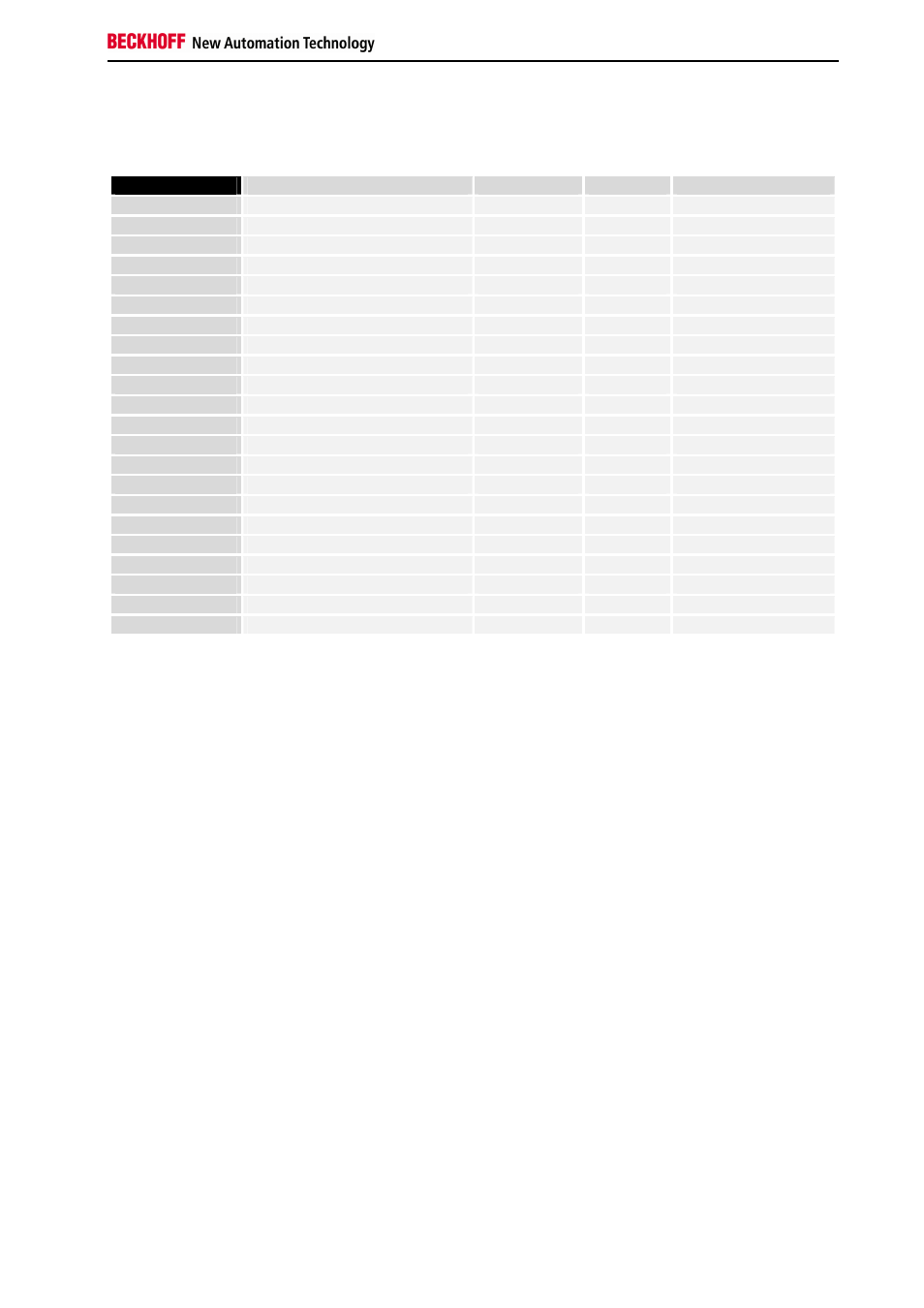1 register overview, 2 register description, 1 general register description – BECKHOFF KL1501 User Manual
Page 9

Terminal configuration
KL1501
7
3.1 Register Overview
Register No.
Description
Default
R/W
Storage medium
R0
not used
0x0000
R
...
...
...
...
...
R5
not used
0x0000
R
R6
Diagnostic register – not used
0x0000
R
R7
Command register - not used
0x0000
R
R8
Terminal type
1501
R
ROM
R9
Software version number
0x????
R
ROM
R10
Multiplex-shift register
0x0130
R
ROM
R11
Signal channels
0x0128
R
ROM
R12
minimum data length
0x2828
R
ROM
R13
Data structure
0x0000
R
ROM
R14
not used
0x0000
R
R15
Alignment-register
variable
R/W
RAM
R16
Hardware version number
0x????
R/W
SEEROM
R17
not used
0x0000
R/W
SEEROM
...
...
...
...
...
R30
not used
0x0000
R/W
SEEROM
R31
Code word register
variable
R/W
RAM
R32
Feature register
0x0100
R/W
SEEROM
R33
not used
0x0000
R/W
SEEROM
...
...
...
...
...
R63
not used
0x0000
R/W
SEEROM
3.2 Register description
The complex terminals can be adjusted to different operating modes or
functionalities. The General Description of Register describes the contents
of the registers, which are identical for all complex terminals.
The terminal-specific registers are explained in the section following to it.
The access to the internal registers of the terminal is described in the
section Register Communication.
3.2.1 General register description
Complex terminals that possess a processor are capable of bidirectionally
ex-changing data with the higher-level control system. Below, these
terminals are referred to as intelligent bus terminals. They include the
analog inputs, the analog outputs, serial interface terminals (RS485,
RS232, TTY etc.), counter terminals, encoder interfaces, SSI interfaces,
PWM terminals and all other parameterizable terminals.
Internally, all intelligent terminals possess a data structure that is identical
in terms of it's essential characteristics. This data area is organized in
words and embraces 64 registers. The essential data and parameters of
the terminal can be read and adjusted by way of the structure. Function
calls with corresponding parameters are also possible. Each logical
channel of an intelligent terminal has such a structure (therefore, 4-channel
analog terminals have 4 register sets.
